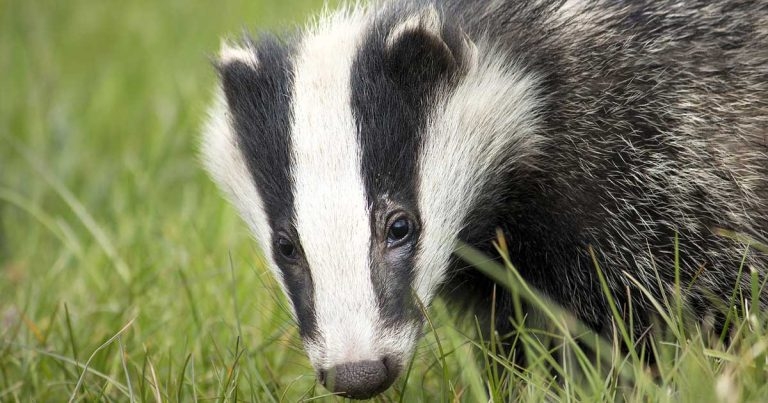21 Mar 2022
Study authors used government data to measure efficacy of the cull in England and found culling of badgers had no impact when it came to reduction of bovine tuberculosis in cattle.

The nationwide culling of badgers has come under fire after a study found that it has been ineffective at controlling the spread of bTB.
A peer–reviewed study has concluded there is no detectable link between the culling of badgers and any decline in the level of bTB in cattle.
Authors of the study, commissioned by the charity Born Free and published in the BVA’s Vet Record, state that Defra’s policy of culling badgers, which the authors claim has had an expense of more than £100 million, has “cost a fortune and saved nothing”.
Since 2013, more than 140,000 badgers across the west and south-west of England have been culled as part of a government effort to control bTB.
While the authors concede there has been a small reduction in bTB, they said this is due to the imposition of new biosecurity measures on the movement and testing of cattle, and not linked with the ongoing badger cull.
Statistics show a slight decrease in the incidence of the disease across a number of counties involved in the study, deemed to be high-risk areas, but the group said this cannot statistically be attributed to the cull.
The research paper concludes: “Badger culling cannot be responsible for initiating the levelling off and downward trend in OTF-W (officially tuberculosis free) incidence in the high-risk counties, because levels of badger culling were small-scale and localised before OTF-W incidence peaked and decrease began, in or before 2015.”
Mark Jones, Born Free’s head of policy and one of the study’s co-authors, said: “To justify the licensed killing of many thousands of legally protected badgers, the Government should at the very least be able to demonstrate a substantial and predictable disease control benefit.
“Our analysis of the Government’s own data found no evidence to support the mass killing of badgers, and confirms the conclusion of scientists who oversaw extensive government research conducted between 1998 and 2005 that ‘badger culling can make no meaningful contribution to the future control of cattle TB in Britain’, and that substantial reductions in cattle TB incidence could be achieved by improving cattle-based control measures.
“There is no justification for killing anymore badgers. It’s time to bring this unscientific, inhumane and unnecessary badger culling policy to an immediate and permanent end.”
Responding to the study, CVO for England Christine Middlemiss claimed that the research paper’s methodology is flawed.
She said: “We do not believe the scientific methodology used is credible as the analysis has been carried out in an unusual manner that masks the effect of culling by incorrectly grouping data, which makes it impossible to assess the impact of culling on cattle TB breakdowns.”
Dr Middlemiss went on to argue that the study incorrectly combines data for areas where culling commenced that same year along with areas with a longer history of culling, and argues this is an inappropriate grouping of data as the impact of culling on cattle outbreaks takes some time to appear – typically two years.
She added: “This has the effect of masking trends in herd breakdown incidence like the statistically significant decreases observed previously in areas where culling has been underway for several years.”
A spokesperson for Defra described the the paper as being produced to fit a “clear campaign agenda” and that it “manipulates data” in a way that makes it impossible to see the actual effects of badger culling on reducing TB rates.
The spokesperson added that it was “disappointing to see [the study] published in a scientific journal”.
Government statistics released in March 2022 found that the total number of cattle slaughtered due to a bTB incident in England in 2021 decreased 1% from the previous year, down to 27,581.
Alongside Dr Jones, the paper was authored by Thomas Langton and Iain McGill, who claim theirs is the most extensive piece of research on bTB statistics to date.
Responding to the publication of the paper, BVA senior vice-president James Russell said: “As an evidence-based profession, we welcome any new data or research that sheds light on bTB control.
“Our own policy position recognises the need for ongoing analysis in what is a scientifically complex field and supports an holistic approach that makes use of all the tools in the toolbox to tackle this devastating chronic disease.
“As the paper clearly acknowledges, there are limitations to the data used by the authors. We are also aware that Defra’s analysis of the research offers a different perspective. We will be reviewing the new research in order to draw our own conclusions on the robustness of the analysis and any implications for our policy.
“As with all our policy decisions, the BVA will take this opportunity to review and consider all new and emerging research to ensure our recommendations reflect the latest, scientifically rigorous evidence.”